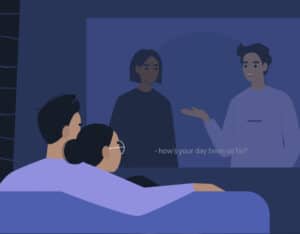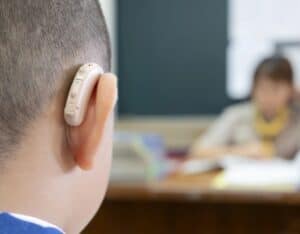Blog
Understanding Auditory Symptoms in Musicians: Insights from Recent Research
Musicians rely on their hearing as much as athletes rely on physical strength. Whether performing live, rehearsing in enclosed spaces, or producing music in studio settings, exposure to high sound levels is part of the profession. Recent scientific research, including a systematic review and meta-analysis published in a peer-reviewed medical…
Why Subtitles Are Becoming Essential, Even with Good Hearing
If you feel like you suddenly need subtitles for everything, you are not alone. Many Albertans say they cannot clearly understand dialogue on TV, movies, or social media videos without captions turned on. At Soundwave Hearing Care, we hear this concern regularly. Clients often worry their hearing aids are not…
Finding Strength Through Hearing Loss: The Story of Ballerina Sara Mearns
For many, the world of ballet is one of grace, movement, and music. For Sara Mearns, a renowned ballerina admired by audiences worldwide, that world changed in an instant during a rehearsal in Brazil. What followed was a journey through fear, self-doubt, and ultimately, empowerment; a story that resonates with…
Hearing Loss and Your Heart: Understanding the Links Between Hearing Health, Cardiovascular Risk, and Diabetes
Hearing loss isn’t just an inconvenience; it can have a profound impact on your overall health and well-being. Understanding how hearing health connects to other medical conditions is crucial. At Soundwave Hearing Care in Calgary, Alberta, we’re dedicated to supporting your hearing journey with compassionate, comprehensive care. In this post,…
The Link Between Reproductive Health and Hearing: Insights for Women in Alberta
When we think about pregnancy, we often focus on changes like hormonal fluctuations, weight gain, and cardiovascular adjustments. But did you know that the number of pregnancies you’ve had could influence your hearing health? Recent research has uncovered a compelling association between multiple pregnancies and an increased risk of hearing…
The Science Behind How Our Brain Syncs Sight and Sound
Have you ever watched a movie where the dialogue feels slightly out of sync with the actors’ lips? That tiny mismatch can be surprisingly distracting. Yet in everyday life, our brains rarely make such mistakes, even though light and sound move at very different speeds. How does the brain pull…
Huey Lewis Proves Hearing Loss Doesn’t End the Music
Photo by Deanne Fitzmaurice, via Penguin Random House Speakers Bureau: https://www.prhspeakers.com/speaker/huey-lewis Huey Lewis, the legendary frontman behind hits like The Power of Love and Hip to Be Square, has faced one of the toughest challenges of his life: a near-total loss of hearing caused by Ménière’s disease. This inner-ear condition,…
Long-Term Impact of Mobile Phone Use on Auditory Function
We rely on our phones for everything, from calls and videos to music and endless scrolling, but few people stop to think about what all that exposure might be doing to their ears. The truth is, constant mobile phone use can quietly chip away at your hearing long before you…
Why You Should Disclose Your Hearing Loss at Work and How to Do It
For many professionals in Alberta, a busy workplace is a daily reality. The hum of conversations, the ringing of phones, and the fast-paced flow of information are all part of the job. But for those experiencing hearing loss, this environment can be incredibly challenging. The fear of being misunderstood or…
Hear with Your Eyes: Are Live Captioning Glasses the Right Choice for Your Hearing?
For those living with hearing loss, a simple conversation in a noisy environment can feel like an insurmountable challenge. You might find yourself missing key phrases, constantly asking for repeats, and feeling isolated from the world around you. While modern hearing aids have made incredible strides, innovators are exploring new…
Does Your Child Use Headphones or Earbuds? These Four Tips Can Help Keep Young Ears Safe
In today’s digital world, headphones and earbuds are as common in a child’s backpack as lunchboxes and water bottles. Whether it’s for online learning, gaming, or listening to music, kids are spending more time than ever with audio devices plugged into their ears. But while these tools offer convenience and…
Breakthrough Gene Therapy Jab Reverses Hearing Loss in Weeks
A recent scientific breakthrough is raising hope for millions of people with hearing loss—especially here in Alberta. According to a new study, a single injection of a “gene therapy” jab was able to reverse certain types of hearing loss in just weeks. What the Study Found As reported in an…












